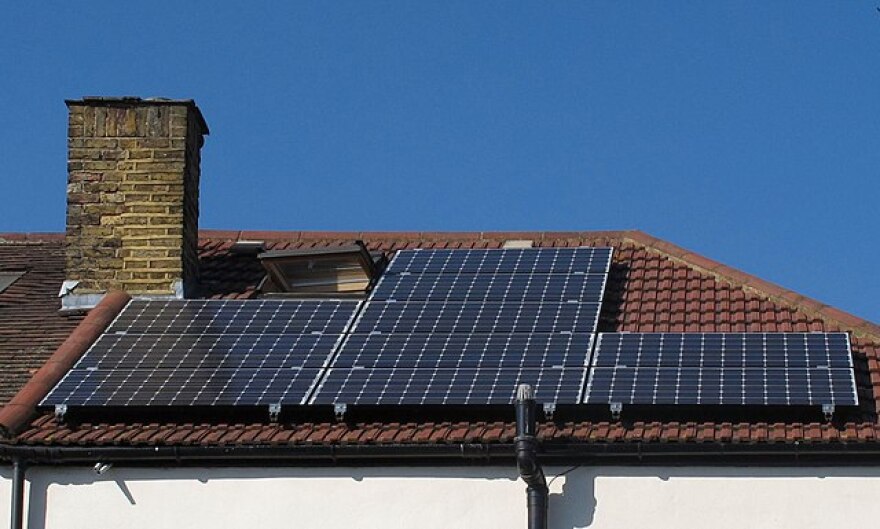A now bankrupt rooftop solar company called Pink Energy has been grabbing headlines across the country, including in the Dayton Daily News. People allege Pink Energy’s deceptive sales practices and faulty equipment have left them with pricey rooftop solar systems that aren’t saving them as much money on their monthly electric bills as they’d like. Lawsuits against the company are pending in a number of states. Reporter Lynn Hulsey has been reporting on the company and consumer best practices for installing rooftop solar. WYSO Environmental Reporter Chris Welter spoke with her to learn more about what she has found out.
Transcript (edited lightly for length and clarity)
Lynn Hulsey: We got a call from a consumer who had installed a $46,000 system on his barn out in Miami County. He was told he'd get 100% off his electric bill, that it would be offset by the energy produced by this system (which also came with a battery pack to store the energy). Well, that 100% off his electricity bill never happened and he said the system never worked as promised. Then he went through a lender that the company suggested, and he wound up feeling that he had been basically deceived in several ways. His complaints mirror the complaints that were received by the Ohio Attorney General. There were 410 complaints as of the point when I did the story.
Chris Welter: So what can people do if they're interested in getting rooftop solar? What can they do to avoid being put into this kind of a situation?
Lynn: Well, you definitely need to do your own research. The consumer I spoke to listened to what the company said about the system, about what he needed as far as how many panels. One of the clean energy advocates I spoke to said, get a lawyer because these are not cheap systems. The guy, our consumer, we looked at for this story, he paid $46,000 for his system.
The Energy Department actually has a calculator that you can use to determine how much you actually need as far as your system, how many panels to actually do the job that you want. The guy I interviewed said when he had another company come in after he started having these problems they said it would have been about $25,000 on top of that $46,000 for him to get a system that actually would, if it worked properly, replace 100% of his electric bill costs. So at some point, the size of the system that you need may just be unaffordable.
If you just do a Google search, a lot of times the first hits will be information from companies that want to sell you something. So you really want to research in places that aren't companies that want to sell you something. I always tell people try to think like a reporter. First thing I would do, I'd go look at the local county's Common Pleas court and see if there are any lawsuits filed against the company, just because there is a lawsuit doesn't mean the company is bad—people can file a lawsuit over anything—but if you see a bunch of lawsuits against the company, it's something to keep in mind before you hand over a bunch of money, or get in debt.
Chris: So a part of this surge in these rooftop solar companies has been the federal tax credits that now exist when people decide to install a solar panel system on their roof. Can you talk a little bit about that? I know that they recently increased them, right?
Lynn: It was boosted in last year's Inflation Reduction Act to 30%. So definitely research how that works and how you get it and how much you will get because it can offset a good chunk of the cost of your system. But you want to make sure that you don't get stuck with a ballooning payment because you didn't understand how the federal tax credit worked.
Chris: What do you think people should take out of this this situation with Pink Energy?
Lynn: There are reputable and well-intentioned companies out there, but there are people who are just wanting to get the sale and get it installed and you don't know if they're going to be around even for the length of the warranty. Certainly for the Pink Energy customers, since they're bankrupt, a ten or twenty year warranty isn't going to do much good if the company is out of business. At this point, those consumers are really sort of stuck.
Chris Welter is a reporter and corps member with Report for America, a national service program that places journalists into local newsrooms.



